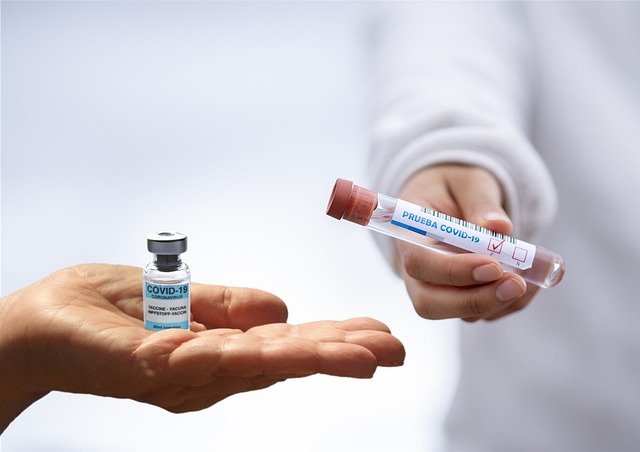Regenerative therapy programs harness the body's natural healing powers through cutting-edge treatments like stem cell therapy, tissue engineering, and biomaterial scaffolds, revolutionizing healthcare. These innovative solutions address a wide range of health conditions, offering improved recovery times and enhanced quality of life for diverse patients. Integrating mindfulness practices with regenerative therapies further improves mental well-being, while adopting a holistic lifestyle shift, including dietary improvements, exercise, quality sleep, and stress management, optimizes the effectiveness of these programs. The future holds bright prospects, with personalized treatments, advanced technologies like 3D bioprinting, and digital health solutions driving the field forward, positioning regenerative medicine as a powerful tool for maintaining and restoring optimal human health.
Enhance your quality of life with regenerative therapies—a revolutionary approach to healing that unlocks the body’s innate ability to repair and regenerate. This comprehensive guide explores various aspects of regenerative therapy programs, from their impact on physical well-being, including injury repair and organ regeneration, to mental health benefits and cultivating mindfulness. We also delve into practical ways to integrate these therapies into daily life and future perspectives shaping the field of regenerative medicine.
- Understanding Regenerative Therapy Programs: Unlocking the Body's Healing Potential
- The Impact on Physical Well-being: From Injury Repair to Organ Regeneration
- Mental Health and Regenerative Practices: Cultivating Mindfulness for Optimal Living
- Integrating Regenerative Therapies into Everyday Life: Lifestyle Changes for Longevity
- Future Perspectives: Emerging Trends Shaping the Field of Regenerative Medicine
Understanding Regenerative Therapy Programs: Unlocking the Body's Healing Potential

Regenerative therapy programs represent a groundbreaking approach in healthcare, harnessing the body’s innate healing abilities to restore and rejuvenate damaged tissues and organs. These innovative treatments offer a promising alternative to traditional methods by encouraging the growth of new, healthy cells and tissues. At their core, regenerative therapies aim to unlock the body’s natural repair mechanisms, which have evolved over millions of years to maintain optimal health.
Through various techniques such as stem cell therapy, tissue engineering, and biomaterial scaffolds, regenerative medicine seeks to replace or support the body’s aging or damaged cells. By understanding how these programs interact with the body’s complex signaling networks, medical professionals can unlock a new frontier in healthcare, where the body becomes an active partner in its own healing process. This shift from traditional suppression of symptoms to harnessing the body’s inherent potential promises significant improvements in quality of life for individuals seeking regenerative therapy.
The Impact on Physical Well-being: From Injury Repair to Organ Regeneration

Regenerative therapies have a profound impact on physical well-being, offering innovative solutions for various health conditions. These cutting-edge treatments go beyond traditional medicine by harnessing the body’s natural healing mechanisms to repair and regenerate damaged tissues and organs. One of the most remarkable aspects is their versatility; regenerative therapy programs can address not only acute injuries but also chronic conditions that have long been considered incurable.
From repairing torn ligaments and regenerating cardiovascular tissue to restoring function in paralyzed limbs, these therapies present a new frontier in medicine. By stimulating the growth of healthy cells and promoting tissue regeneration, regenerative treatments offer hope where conventional methods struggled. This shift towards personalized, patient-centric care has the potential to enhance not just recovery times but also long-term quality of life for individuals across different age groups and health backgrounds.
Mental Health and Regenerative Practices: Cultivating Mindfulness for Optimal Living

Mental health is an integral aspect of overall well-being, and integrating mindfulness practices with regenerative therapies can significantly enhance one’s quality of life. Regenerative therapy programs often go beyond physical healing by addressing the mind-body connection, recognizing that mental wellness is crucial for optimal recovery and sustained vitality. Mindfulness, a cornerstone of many regenerative approaches, involves cultivating present-moment awareness and non-judgmental acceptance.
Through meditation, breathing exercises, and other mindful practices, individuals can reduce stress, anxiety, and depression while increasing emotional regulation and resilience. These mental health benefits are particularly valuable in the context of regenerative therapy, as they support the body’s natural healing mechanisms. By nurturing mental clarity and emotional balance, individuals can better navigate the challenges that come with injury or illness, fostering a sense of empowerment and overall life satisfaction.
Integrating Regenerative Therapies into Everyday Life: Lifestyle Changes for Longevity

Integrating regenerative therapies into your everyday life isn’t just about adopting a new treatment; it’s a shift towards a more holistic approach to longevity. This involves making lifestyle changes that support and enhance the benefits of these cutting-edge therapies. Simple adjustments like improving your diet with nutrient-rich foods can boost your body’s natural healing abilities, complementing regenerative therapy programs. Regular exercise, both aerobic and strength training, not only promotes physical fitness but also facilitates the body’s regeneration process.
Additionally, prioritizing quality sleep, managing stress levels through mindfulness or meditation, and staying socially connected are essential components of this lifestyle transformation. These practices create a harmonious balance that allows regenerative therapies to work more effectively. By embracing these changes, individuals can unlock their body’s potential for self-repair and renewal, contributing to an improved quality of life well into the future.
Future Perspectives: Emerging Trends Shaping the Field of Regenerative Medicine

The future of regenerative medicine is filled with promising trends that hold immense potential for enhancing quality of life. One emerging area of focus is the development of personalized regenerative therapy programs, tailored to individual patients’ needs and genetic profiles. This approach leverages advancements in genomics and biotechnology to create highly effective treatments, addressing specific conditions and even preventing disease progression.
Another notable trend is the integration of regenerative therapies with digital health solutions. Telemedicine, AI-driven diagnostics, and wearable health devices are enabling continuous monitoring and precise intervention, enhancing patient outcomes. Additionally, 3D bioprinting and advanced materials science are opening doors to creating complex, functional tissues and organs, potentially reducing organ donation wait times and improving transplant success rates. These innovations collectively point towards a future where regenerative medicine plays a pivotal role in maintaining and restoring optimal human health.
Regenerative therapies offer a promising path towards enhancing quality of life, harnessing the body’s inherent healing abilities across physical and mental domains. As research continues to evolve, integrating these innovative practices into everyday routines could revolutionize wellness, paving the way for a future where individuals actively shape their longevity and overall well-being through regenerative therapy programs.
